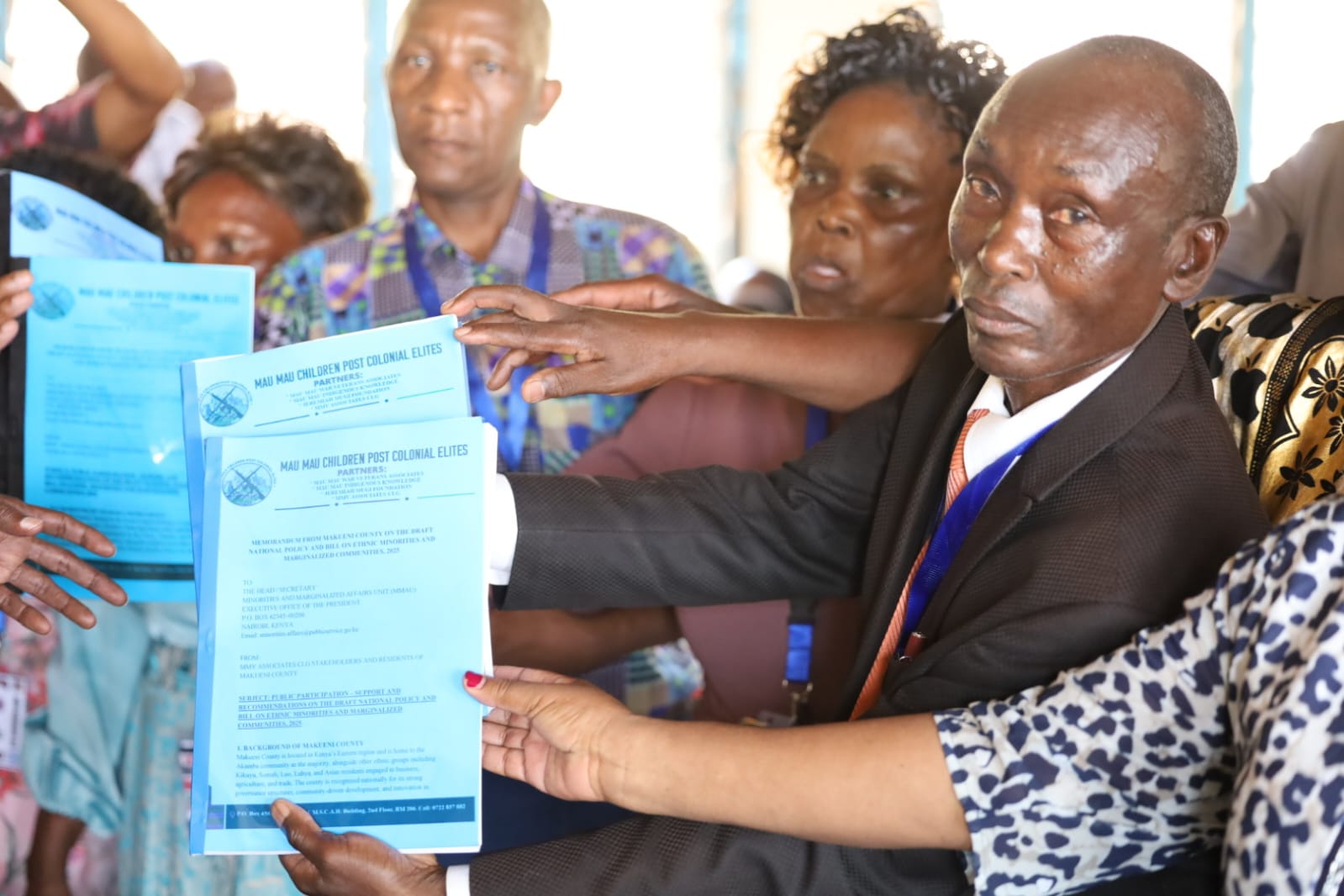
By Andrew Mbuva and Ryan Mumo
The Eastern region consultations on the draft National Policy and Bill for Minority and Marginalized Communities continued in Kibwezi Sub-County, Makueni County, drawing diverse voices from local communities, government representatives, and advocacy groups.
The discussions, which form part of a national exercise, aim to refine proposals geared toward addressing historical injustices, exclusion, and marginalization while fostering equality, inclusion, sustainable development, and national cohesion.
Among the communities taking part is the Angulya, a group seeking official recognition as one of Kenya’s ethnic communities. The Angulya people, found mainly in Kibwezi, Kiboko, Kambu, and Mtito Andei, say they have for years been left out of key government processes and opportunities.
Speaking during the forum, Director of the Minority and Marginalized Affairs Unit (MMAU), Abdi Kahiga, lauded the turnout and engagement from local communities, saying the consultations have provided an adequate platform for all voices to be heard.
“We have been assured that there was adequate preparedness and meaningful submissions from participants. Every county has unique people, cultures, and diversities that must be captured in this policy,” Kahiga said, adding that the unit will carefully review the submissions to ensure that no community is left out.
Ibrahim Makwatta, Chairperson of the Angulya People, expressed gratitude that the government had recognized their presence and concerns but raised a critical point about the language used in the policy.
“We appreciate that this government has recognized us, but what about the next government? That’s why we are asking that the term state be used instead of government, since the state is a living entity captured in the Constitution,” said Makwatta.
He urged neighboring communities, especially the Kamba, to support their cause, noting that Angulya’s quest for recognition does not threaten anyone’s opportunities.
“We want our friends from the Kamba community in Kibwezi and Kikumbulyu to understand that we are a marginalized people. When Mungulya people were given jobs in the military, no Kamba positions were reduced. We’re only fighting for ourselves and seeking support, not conflict,” he added.
Akim Nginda Kithanze, an Angulya spokesperson, encouraged members of the community to embrace their heritage boldly.
“There is no embarrassment in associating with your culture, even if some may view it as backward or uncultured, because that is what defines you. I am proud to be a Mungulya person,” he declared, drawing applause from the crowd.
From Kibwezi, Hassan Kiteme, a father of 13, emphasized the importance of equal rights for all.
“I have five boys and eight girls, and every child deserves their rights regardless of where they come from,” he said.
Elizabeth Vaati, an Angulya member from Kivuthini, voiced her frustrations, saying her community often feels forgotten.
“We feel like we’ve already been forgotten, with no one to fight for our rights. We thank the government for bringing such initiatives because if our problems are addressed, we will not be a burden to the state,” she noted. “When we are empowered, we will not have to ask the president for food because we’ll have our own farms and livelihoods.”
As the consultations continue across the country, communities like the Angulya hope that the final policy and bill will not only recognize their identity but also open the door to inclusion, opportunities, and equitable development for all marginalized groups in Kenya.